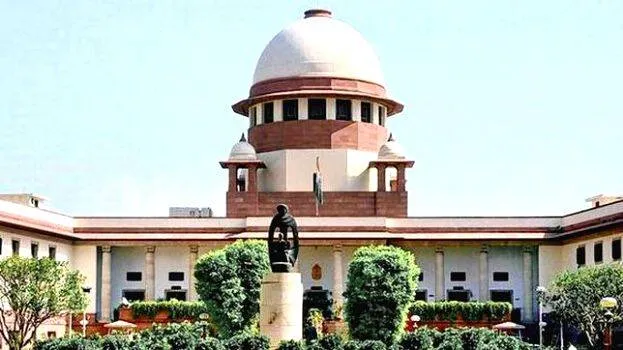

NEW DELHI: The Supreme Court was surprised and angry at the Kerala government's stance that the government cannot establish an LP school in Elambra, Manjeri, Malappuram. "Why is Kerala, which boasts of 100% literacy, opposing the establishment of government schools? Full literacy was achieved because of the money spent on the education sector. There should be no compromise on it. Education is a fundamental right," the bench of Chief Justice Surya Kant and Justice Joymalya Bagchi reminded. The Supreme Court, which directed the government to establish an LP school in Elambra within three months, also issued general instructions to be applied throughout Kerala.
The petition related to the education department came before Justice Surya Kant, a day after he assumed office as Chief Justice. The Kerala government approached the Supreme Court against the order of the High Court on a public interest litigation filed by the natives of Elambra.
"The government cannot evade the issue by citing technical reasons in the Kerala Education Act, economic crisis and geographical problems. The Right to Education Act requires that there should be an LP school within a radius of one kilometer and an UP school within a radius of three kilometers. That provision should be followed. This should be implemented in Kerala in two phases," the court clarified.
Two phases to implement
In the first phase, the government should identify areas where there are no LP and UP schools. In the second phase, an LP school should be established within a radius of one kilometer and a UP school within a radius of three kilometers. It should be a government school, not an aided or unaided one. Action should be taken within three months. If there are geographical difficulties, the school should be located in a place where children can reach it as close as possible.
High Court's stand is correct
The locals had requested the Education Department to start a government LP school in Elambra, but it was rejected. The locals had purchased one acre of land. The municipality had agreed to construct the building. When the government turned its back, the locals including T. Muhammed Faizi approached the Kerala High Court and obtained a favourable order. The state government approached the Supreme Court against this. The Supreme Court upheld the Kerala High Court's stand.
State government's argument not valid
The Supreme Court did not accept any of the counter-arguments raised by the state government, which took the stand that a new LP school is not needed in Elambra. The government's statement that it would arrange free transport to the government school 3 km away angered the court. Advocates P.V. Dinesh and P.S. Zulfikar Ali, who appeared for the locals, informed that there would be a situation where students have to leave early in the morning and return late at night.
Temporary building
"The Court understands the financial difficulties of the government. Private buildings can be converted into temporary and make-shift schools. It should not continue indefinitely. Funds should be allocated in the budget to build permanent schools. Retired teachers can be appointed for a year until permanent teachers are appointed. If necessary, permission can be given to charitable institutions to establish schools."
